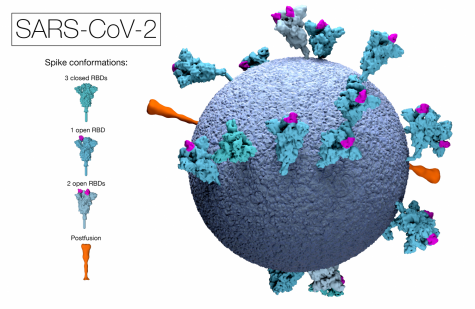COVID-19 strikes back with yet another variant
December 14, 2021
The disease COVID-19, caused by the coronavirus or SARS-CoV-2, has developed another variant named by the Centers for Disease Control (CDC) as variant B.1.1.529, or Omicron. The variant was first detected on Nov. 11 in Botswana and then on Nov. 14 in South Africa. However, it was reported to the World Health Organization on Nov. 24, and the organization along with the United States have labeled the strain as a “variant of concern.”
The Omicron variant is the twelfth variant of COVID-19, and is the second variant labeled under “Variant of Concern” after the Delta variant. However, according to the CDC, the Delta variant remains to be the dominant strand, as it continues to circulate throughout the United States.

U.S. health officials have speculated that in terms of contagion, the Omicron variant appears to be more contagious than Delta. Between Dec. 1-8, 22 states have reported at least one COVID-19 case relating to the variant, with only one hospitalization among the 43 cases and zero deaths.
”Though it’s too early to really make any definitive statements about it, thus far, it does not look like there’s a great degree of severity to it,” nation’s top public health adviser Anthony S. Fauci told CNN’s State of the Union on Dec. 5.
Although there is still much to be learned about the new variant, the CDC expects current vaccines to remain effective towards it.
As of now, everyone ages five and up are able to receive a vaccine. Booster shots are also available for everyone ages 16 and up.








